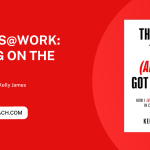The Science of Time: How Time Limitations Can Help You Clarify Your Goals
December 25, 2018
Note From Rochelle
Dear Writers,
Merry Christmas to those who celebrate! I’m taking the week off to read, watch movies, and spend time with my family.
If you’re looking for an end-of-year gift for you or a friend, I have a holiday special going on. I’m offering the “Can You Look at My Pages” coaching session for the price of the “I Just Need to Talk” session. Any purchase of the “I Just Need to Talk” session between now and December 31, 2018 will get the upgrade. You can purchase as many sessions as you want and use the session anytime between now and December 31, 2019. You can purchase sessions here: WRITING COACHING.
I’m delighted to welcome Dr. Katherine King to the blog today to talk about how we can use the idea of time limitations to set better goals. She’s got some helpful journaling questions to support you in planning for the New Year. Enjoy!
Happy Writing!
Rochelle

The Science of Time:
How Time Limitations
Can Help You Clarify Your Goals
By Katherine King, PsyD
Have you ever started your day with a long list of things you wanted to get done around the house? Then, maybe by mid-afternoon, you realize that your list was completely unrealistic. So, you decide to rethink your approach and zero in on just your top three most important tasks. As evening dawns, you might hone in further. Realizing you can only really get two of the tasks done well, you decide to scrap the third.
In your writing life, something similar might happen. Maybe you see New Year’s Eve coming soon, and you realize you never achieved your goal of writing your novel over the last year. You might feel frustrated, but you might also think to yourself, “Okay, well what can I get done before the year ends?” You look ahead and decide that maybe you could focus your energies to at least write an outline, or a few character sketches.
The Science Behind the Practice
This process of goal setting followed by revising them down to more manageable pieces can be frustrating, and it’s easy to feel like you are failing when it happens. Thankfully, research has begun to show just how common and normal a part of life this is. Psychology has a fancy name for the process (Socioemotional Selectivity Theory), and it started off when researchers looked at how people nearing the end of life make decisions about how to spend their remaining time. Thinking of what we would do if we were told we were dying, many of us probably imagine that we would start in earnest to tackle our Bucket Lists. Go to Paris! Learn to play the piano! Finish writing that book!
What researchers have shown us, however, is that this isn’t always what happens. Instead, people seem to step back and think about their priorities. If I only have five years left, what really is most important to me? Suddenly, Paris and the piano may not look as good as finishing writing that book, and none of it may compare to spending time with loved ones making memories that will last after I’m gone.
Suddenly, something as mundane as more family dinners surpasses all the other grand ambitions. This is socioemotional selectivity theory (SST) at work: I am selecting those activities that prioritize meeting my most important social and emotional needs. Note: Depending on your values, the trip to Paris might still be a must!
Further research began to show that SST is at work throughout the lifespan. Indeed, it seems to be operating whenever there is a sense of the finitude of time. The last semester of college, people tend to focus on deepening the friendships they already have rather than making new ones. It also appears that even asking people to contemplate an ending- whether the end of a day, a year, a life- stimulates people to think about what they value most and naturally adjust their priorities accordingly.
Use the Science to Reflect on Your Life
With the end of the year fast approaching, the time is ripe to consciously apply SST and let it work its magic on us. Try the following journaling prompts to get you thinking about your highest priorities.
- If you learned today that an asteroid was going to hit the planet in six months, what three things would be most important to you to do? What if the asteroid were coming in one week?
- If there were a rule that you could only have contact with five close family or friends, who would you choose?
- What long-term goals would you like to achieve before your next big multiple-of-five birthday? How about before your next birthday?
- Are there any old goals that used to matter a lot to you that no longer do? What changed?
- Think about how much free time you really have in your day, then estimate how many hours that would be for a month or a year. In that precious limited time, what would you like to do?
Take Action
Now that you have a clearer sense of what is important to you, get out there and take some action! Remember, adjusting your goals is not a sign of failure. It is a common human experience to start with a broad and inclusive set of goals, and only to refine them to what matters most when time starts to tick away. Becoming more aware of the decisions we make during this process helps us better understand ourselves, our needs, and our values.
 About the author: Katherine King, PsyD is a clinical psychologist and writer in the Boston area. She is an assistant professor of psychology at William James College and specializes in geropsychology, a discipline which focuses on the unique mental health and developmental needs and challenges of older adults. She is also a dedicated meditation practitioner and student of Tibetan Buddhism. Find her on Twitter: @drkateking
About the author: Katherine King, PsyD is a clinical psychologist and writer in the Boston area. She is an assistant professor of psychology at William James College and specializes in geropsychology, a discipline which focuses on the unique mental health and developmental needs and challenges of older adults. She is also a dedicated meditation practitioner and student of Tibetan Buddhism. Find her on Twitter: @drkateking














